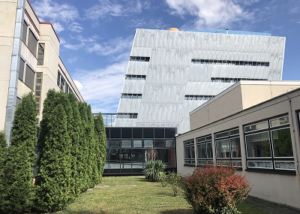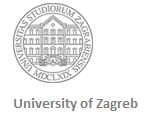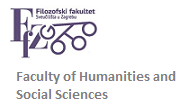Home » 2012 (Page 5)
Yearly Archives: 2012
Alternative Worlds in Contemporary British Fiction
Course title: Alternative Worlds in Contemporary British Fiction
Instructor: Assoc. Prof. Iva Polak
ECTS credits: 6
Language: English
Duration: Semester 3 or 5
Status: elective
Enrolment requirements: completed Introduction to English Lit/Introduction to English Lit 1 and 2
Course description: The course focuses on the establishment of a different literary canon following WW2 in the UK, which is embedded in various genres of the fantastic. Ranging from primarily male dystopian SF fiction, feminist SF fiction to fantasy and magical realism coming from former colonial subjects and new regional voices in the UK, selected texts raise the issue of the construction of new contemporary identities and realities of the UK through the vehicle of fantasy. The aim is to cover a whole spectrum of gendered, transcultural and regional voices present in the last 60 years in British fiction. The course also includes discussions on a range of cinematic adaptations accompanying selected texts.
Objectives: Widening awareness of some of the most recent trends in British fiction and learning the basic postulates of literary fantasy.
Course requirements: The final grade is based on continuous assessment which includes regular attendance (max. 4 unattended classes), preparation for and participation in class, writing small assignments, timely submission of the final paper, and obligatory sitting for midterm and endterm exam. The paper is worth 35%, midterm and endterm exams are worth 50% and other elements of continuous assessment are worth 15% of the final grade. Students must meet all requirements of continuous assessment.
Weekly schedule
WEEK 1
Post-WW2 socio-historical context in the UK: literary reaction to the post-WW2 years; a decade after “Angry Young Men”; dystopian reaction; feminist novel after V. Woolf (second wave feminism, postfeminism); gendered novel; novel and the end of the Empire; regional voices; the notion of belonging and trans/national identity
WEEK 2
Historical development of literary utopia/dystopia (Republic; Utopia; New Atlantis; Gulliver’s Travels); utopian/dystopian SF novel (Brave New World; We)
Michel Foucault. “Of Other Spaces: Utopias and Heterotopias”
Peter Fitting. “A Short History of Utopian Studies”
WEEK 3
George Orwell. Nineteen Eighty-Four (1949) (dystopia; mind-control)
Patrick Parrinder. Nation & Novel, pp. 314-320 (on Orwell)
Adam Roberts. Science Fiction: Chapter 1: “Defining science fiction”
Darko Suvin. “On the Poetics of the Science Fiction Genre”
WEEK 4
Nineteen Eighty-Four cont.
WEEK 5
Nineteen Eighty-Four. (1984) dir. Michael Radford, and Brazil (1985) dir. Terry Gilliam
Adam Roberts. Science Fiction: Chapter 5: “Technology and Metaphor”
WEEK 6
Anthony Burgess. A Clockwork Orange (1962); (dystopia; violence)
WEEK 7
A Clockwork Orange (1971) dir. Stanley Kubrick
Guidelines for writing research paper
WEEK 8 – 45min midterm exam; no classes
WEEK 9
Jeanette Winterson. The.PowerBook (2000): metafiction; gendered narrator
Brian McHale. Postmodernist Fiction: Chap. “Chinese-box worlds”
WEEK 10
Magical realism genre theory
Wendy B. Faris. “Scheherezade’s Children: Magical Realism and Postmodern Fiction.”
WEEK 11
Angela Carter. Nights at the Circus (1984): postmodernism, metafiction, feminism, Victorian Period and “side-shows” (freak shows); Freaks (1932) dir. Ted Browning.
Brian Finney. Ch. 9 “Angela Carter: Nights at the Circus” in English Fiction since 1984: Narrating a Nation.
WEEK 12
Nights at the Circus cont.
WEEK 13
The most distinct regional voice: Scottish “New Wave” (Gray, Kennedy, Kelman…)
Alasdair Gray. “Wellbeing: A Fiction” in Why Scots Should Rule Scotland (1997): postmodernism, fantasy, Scottish identity
Richard Bradword. Ch.10 “Scotland” in The Novel Now. Contemporary British Fiction.
WEEK 14 – Endterm exam
Reading list:
Novels
George Orwell. Nineteen Eighty-Four (1949)
Anthony Burgess. A Clockwork Orange (1962)
Jeanette Winterson. The.PowerBook (2000)
Angela Carter. Nights at the Circus (1984)
Alasdair Gray. “Wellbeing: A Fiction” in Why Scots Should Rule Scotland (1997)
Critical editions:
– Bowers, Maggie Ann. Magic(al) Realism. Routledge: NY. 2004.
– Bradford, Richard. The Novel Now. Contemporary British Fiction. Blackwell Publishing: Oxford, 2007: Ch. 10.
– Faris, Wendy B. “Scheherezade’s Children: Magical Realism and Postmodern Fiction.” Magical Realism Theory, History, Community, Lois Parkinson Zamora i Wendy B. Faris (eds). Duke University Press: Durham & London. 2005 (1995): 163-190.
– Finney Brian. English Fiction Since 1984: Narrating a Nation. Palgrave: NY, 2006: Ch. 9.
– Fitting, Peter. “A Short History of Utopian Studies”. Science Fiction Studies, Vol. 34, No. 1, 2009: 121-131.
– McHale, Brian. Postmodernist Fiction, Routledge: London/NY, 2004 (1987): Chap. 8.
– Foucault, Michel. “Of Other Spaces: Utopias and Heterotopias”, 1967.
– Parrinder, Patrick. Nation & Novel. Oxford: Oxford University Press, 2006 (selection on Orwell)
– Roberts, Adam. Science Fiction. 2nd ed, Routledge: London/New York, 2006: Ch. 1 and 3
– Suvin, Darko. “On the Poetics of the Science Fiction Genre.” College English, Vol. 34, No. 3, 1972: 372-382.
All textual and audiovisual materials are provided in electronic format.
War, Reconstruction and Transformation: American Literature 1860-1914 (arch.)
Course title: War, Reconstruction and Transformation: American Literature 1860-1914
Instructor: Dr Jelena Šesnić
ECTS credits: 6
Language of instruction: English
Semester: Spring 2012, Spring 2017
Status: elective
Form of instruction: lecture (1 hour) + seminar (2 hours)
Enrollment requirements: Introduction into the Study of English Literature
Course description: In the seminar we shall cover a period in American Literature variousy designated as the Age of Realism and Naturalism or the Gilded Age. Many scholars argue that it is during this period that the United States turned into a modern nation due, primarily, to their unprecedented industrial and economic growth. We shall look at the implications of these huge transformations and their reverberations in some of the exemplary literary and non-literary texts of the period. The four sections we shall be examining in greater detail are the echoes of the Civil War; the perils and pitfalls of post-war Reconstruction effort, and the question of race; economic relations and the way these affect social relations; and, finally, the emergence of new identities, both in the public and the private sphere.
Course requirements: Regular attendance; participation in class discussions; in-class and home assignments; continuous evaluation (a mid-term and a final test, mandatory for all students); seminar paper (6-7 pp, 2000-2500 words, MLA style). It is essential to observe the deadlines set down for particular assignments; if not, this can adversely affect your grade. Grade breakdown: tests—50%; seminar paper—35 %; the rest (see above)—15 %.
Readings (subject to change)
Primary texts
Section 1: the Civil War and its aftermath
Herman Melville: from Battle Pieces (1866; selection of poetry)
Walt Whitman: from Drum-Taps and Memories of President Lincoln (1891-92; selection of poetry)
Rebecca Harding Davis: Waiting for the Verdict (1868; novel; selected chapters)
Section 2: The question of race and Reconstruction
Mark Twain: Pudd’nhead Wilson (1894; novel)
Charles Chesnutt: „The Wife of His Youth“ (1899; short story); „What Is a White Man?“ (1889; essay)
Section 3: Matters of the economy
Elizabeth Stuart Phelps: The Silent Partner (1871; novel)
Upton Sinclair: The Jungle (1906; novel)
Section 4: Emergence of new subjects
Abraham Cahan: „Yekl“ (1896; novella)
Ezra Pound: „Hugh Selwyn Mauberly“ (1920; poetry, selection)
(Note: most of the texts are available in digital form, or can be checked out from the library.)
Secondary readings
Hofstadter, Richard. Social Darwinism in American Thought (1944), Boston: Beacon P, 1992. (selection)
Sundquist, Eric. To Wake the Nations: Race in the Making of American Literature, Cambridge: Harvard UP, 1993. (selection)
Trachtenberg, Alan. The Incorporation of America: Culture and Society in the Gilded Age, New York: Hill and Wang, 1982. (selection)
Nineteenth-Century American Short Fiction
Course title: Nineteenth-Century American Short Fiction
Undergraduate Elective
Nineteenth-Century American Short Fiction
Prof. Charles L. Crow
Thursday 11:45-12:30, D-5
Friday 2:45-4:15, A-123
charleslcrow@yahoo.com
Course requirements: regular attendance, and readings completed before class discussions. Two short essays of approximately 1000-1250 words each. Final examination.
Note 1: I welcome enthusiastic class discussion, including constructive disagreement, and conversations continued after class, in my office, and by e-mail.
Note 2: There may be some modification of this syllabus after the pace of the class is established.
Note 3: Most of these stories are available on the internet. In some cases it may be necessary to provide a copy for duplication.
Week 1. 8-9 March
Introductions. Overview of periods, issues in 19th century American literature and culture. A few American paintings shown to illustrate trends and themes. Two brief folk tales from non-white cultures represent voices to be heard later in the semester.
Charles Brockden Brown, “Somnambulism”
Washington Irving, “Rip van Winkle”
Week 2: 15-16 March
The “Dark Romantics” and their quarrel with Emerson.
E. A. Poe, “The Cask of Amontillado,” “Hop Frog.
Nathanael Hawthorne, “Alice Doan’s Appeal.” “Young Goodman Brown.”
Week 3: 22-23 March
From Romanticism to Realism
Herman Melville, “The Bell Tower,” “Bartleby the Scrivener”
Rebecca Harding Davis, “Life in the Iron Mills”
Week 4: 29-30 March
Harriet Prescott Spofford, “Circumstance”
S. L. Clemens (Mark Twain) “A True Story,” selection from “Old Times on the Mississippi.” “The Man That Corrupted Hadleyburg”
Week 5: 5-6 April
Two anti-war stories by realist masters.
Mark Twain, “The War Prayer”
W. D. Howells, “Editha”
Note: April 6 is Good Friday
Week 6: 12-13 April
The “American Girl” and women’s regional realism
Henry James, “A Bundle of Letters”
M. E. Wilkins Freeman. “The Revolt of Mother,’ “A Church Mouse”
Week 7: 19-20 April
Regional realism, continued
Sarah Orne Jewett, “A White Heron,” “The Foreigner,” “The Circus at Denby.”
Joel Chandler Harris, “The Wonderful Tar Baby,” “How Mr. Rabbit was too Sharp for Mr. Fox.”
Week 8: 26-27 April
Race and the South
Charles Chesnutt, “The Passing of Grandison” “The Sheriff’s Children,” “The Dumb Witness”
Paul Laurence Dunbar, “The Lynching of Jube Benson”
Week 9: 3-4 May
Race and the South, continued
Alice Dunbar Nelson, “Sister Josepha”
Grace King, “The Little Convent Girl”
George Washington Cable, “Jean-Ah Poquelin”
Week 10: 10-11 May
Kate Chopin’s Louisiana:
“Désirée’s Baby,” “The Story of an Hour,” “The Storm,” “A Pair of Silk Stockings,” “A Respectable Woman,” “A Gentleman of Bayou Teche.”
Week 11: 17-18 May
Naturalism and beyond.
Frank Norris, “A Deal in Wheat”
Stephen Crane, “The Monster”
Jack London, “To Build a Fire,” “South of the Slot”
Week 12: 24-25 May
Willa Cather’s Nebraska:
“Old Mrs. Harris,” “Neighbor Rosicky”
Week 13: 31 May-1 June
A feminist classic and a new voice.
Charlotte Perkin’s Gilman, “The Yellow Wall-Paper”
John M. Oskison, “The Problem of Old Harjo”
Week 14: 7-8 June
Thursday is Corpus Christi
Theodore Dreiser, “Typhoon”
Cultural Aspects of American Neoliberalism
Course title: Cultural Aspects of American Neoliberalism
Instructor: Asst. Prof. Sven Cvek
ECTS credits: 6
Status: elective
Semester: 2nd or 4th
Enrollment requirements: enrollment in the graduate program
Course description: Starting from the assumption about the inseparability of the economic, political, and cultural spheres, the course offers an overview of the main social processes related to the emergence and development of US neoliberalism. The course covers the historical period between two economic crises, 1973 and 2008, and follows the cultural articulations of the gradual undoing of the legacy of the New Deal and the parallel rise of the ideas of the Chicago school of economics. Neoliberalism is considered in relation to: liberalism, neoconservativism, the problematic of space, democratic politics, work, and moments of crisis. These topics are studies by relying predominantly, but not exclusively, on works of fiction and film.
Objectives: acquiring knowledge about the development neoliberal ideas and practices; critical approach to social-historica processes; introduction to relevant literature.
Course requirements: regular attendance, written tests, essay paper.
Reading:
Primary:
(selection):
Jonathan Franzen, The 27th City
Bonnie Jo Campbell, The American Salvage
Don DeLillo, Cosmopolis
Po Bronson, Bombardiers
selection of films and series:
Harlan County U.S.A. (Barbara Kopple, 1976)
Blue Collar (Paul Schrader, 1978)
Roger and Me (Michael Moore, 1989)
Wall Street (Oliver Stone, 1987)
Bob Roberts (Tim Robbins, 1992)
Office Space (Mike Judge, 1999)
The Wire (David Simon, 2002-08)
When the Levees Broke: A Requiem in Four Acts (Spike Lee, 2006)
Generation Kill (Ed Burns, David Simon, Evan Wright, 2008)
Sleep Dealer (Alex Rivera, 2008)
Frozen River (Courtney Hunt, 2008)
Winter’s Bone (Debra Granik, 2010)
Take Shelter (Jeff Nichols, 2011)
Margin Call (J.C. Chandor, 2011)
In Time (Andrew Niccol, 2011)
Beasts of the Southern Wild (Benh Zeitlin, 2012)
The Big Short (Adam McKay, 2015)
UnREAL (Marti Noxon, Sarah Gertrude Shapiro, 2015)
Secondary:
– Nikhil Pal Singh, “Liberalism,” In Keywords for American Cultural Studies, ed. Bruce Burgett and Glenn Hendler, New York and London: NYU Press, 2007: 139-44.
– Michel Foucault, The Birth of Biopolitics: Lectures at the Collège de France, 1978-1979. New York: Palgrave Macmillan, 2008. (selection)
– David Harvey, A Brief History of Neoliberalism, Oxford & New York: Oxford UP, 2007. (selection)
– Jane L. Collins, Micaela di Leonardo and Brett Williams, ed. New Landscapes of Inequality: Neoliberalism and the Erosion of Democracy in America, Santa Fe: School for Advanced Research Press, 2008. (selection)
– Wendy Brown, “American Nightmare: Neoliberalism, Neoconservatism, and De-Democratization,” Political Theory, Vol. 34, No. 6 (Dec., 2006), pp. 690-714.
– Jodi Melamed, “The Spirit of Neoliberalism: From Racial Liberalism to Neoliberal Multiculturalism,” Social Text, 89, Vol. 24, No. 4, Winter 2006.
Further reading:
– Milton Friedman, Capitalism and Freedom. Chicago: University of Chicago Press, 1982 (1962).
– Naomi Klein, The Shock Doctrine: The Rise of Disaster Capitalism. New York: Metropolitan Books, 2007. (selection).
– Paul Krugman, “For Richer,” The New York Times, October 20, 2002.
– Lisa Duggan, The Twilight of Equality? Neoliberalism, Cultural Politics, and the Attack on Democracy. Boston: Beacon Press, 2003. (selection).
– Thomas Frank, What’s the Matter with Kansas? How Conservatives Won the Heart of America. New York: Henry Holt and Company, 2005. (selection).
A Historical Survey of the Fantastic in British Literature (2012-13)
Course title: A Historical Survey of the Fantastic in British Literature
Instructor: Asst. Prof. Iva Polak
ECTS credits: 6
Status: elective
Semester: 7th and 9th semester
Enrollment requirements: enrollment in the 7th and/or 9th semester
Course description: The course offers a historical survey of fantasy in British literature and includes discussion on the most seminal theoretical works on fantasy and the fantastic. Texts belonging to the earlier periods will be discussed in the framework of fantasy as a specific historical mode o whereas texts appearing alongside the rise of the novel, i.e. from Romanticism onwards, will be analyzed against the theory of the fantastic as a prose genre. Some literary works are analyzed alongside their cinematic adaptations. Treatment of fantasy and the fantastic will raise issues such as mimesis, rhetoric of the real and unreal, reasons for early appearance of fantasy in literature and its parallel existence with works written into literary realism. Analysis of selected text will be based on the introduction of terminology relevant for this field, such as fantasy, fantastic, the fantastic and its neighbouring (sub)genres.
Objectives: Strengthening students’ awareness of the existence of fantasy from the very beginnings of English literature; detection of shifts in the meaning and importance of the fantastic in literature; a clearer understanding of the postulates of the fantastic.
Course requirements: The final grade is based on continuous assessment which includes regular attendance, preparation for and participation in class, writing small assignments, and timely submission of the final paper. The paper is worth 70% and other elements of continuous assessment are worth 30% of the final grade. Students must meet all requirements of continuous assessment.
Week by week schedule:
WEEK 1
Mimesis and literary canon
Short film: A Trip to the Moon (Le voyage dans la lune), Georges Méliès (1902)
WEEK 2
What is fantastic in fantasy. Genre theory (Todorov/Chanady/Brooke-Rose)
WEEK 3
The problem of the fantastic in the Anglo-Saxon (OE) literature
Beowulf , c. 8th c. (excerpts) – historical context, implicit/encoded reader; heroic or fantastic epic
WEEK 4
The problem of the fantastic in the Middle-English Period
Geoffrey Chaucer, ‘The Nun’s Priest’s Tale’ (The Canterbury Tales) c. 1380-1400 – historical context, fable, fantasy of the so-called “simple forms” (Einfache Formen)
WEEK 5
Appropriation of fantasy in the Early Modern Period
William Shakespeare, The Tempest, 1610-1 – romance; construction of the supernatural; additional cinematic adaptations (fantasy, SF)
WEEK 6
William Shakespeare, A Midsummer Night’s Dream, 1595 – application of Todorov and Chanady; N. Frye’s “Green World”
WEEK 7
Appropriation of fantasy in the Neoclassical Period
Jonathan Swift, Gulliver’s Travels (1726) (excerpts) – 18th c. novel, Menippean satire, fantasy and allegory, location of the 4th journey; the problem of utopia (Plato, More)
WEEK 8
Fantasy and the Victorian Period
Lewis Carroll, Alice’s Adventures in Wonderland (1865) – ‘amoral’ Victorian fantasy literature; construction of meaning (Jabberwocky); source of the supernatural
WEEK 9
Constitution of SF as a genre
H. G. Wells, The Time Machine (1895) – ‘impure’ SF, novum (D. Suvin)
[Film: The Time Machine (1960), dir. George Pal]
WEEK 10
Rise of SF in the UK and USA
Ray Bradbury, Fahrenheit 451 (1953)– dystopia, SF
[Film: Fahrenheit 451 (1966), dir. François Truffaut]
WEEK 11
J.R.R. Tolkien – epic fantasy, high fantasy; Tolkien on fantasy
WEEK 12
Tolkien cont.
WEEK 13
Alasdair Gray, Lanark (1981) – fantasy and realism; metafiction, intertextuality, postmodernism
WEEK 14
Alasdair Gray, Lanark (1981) – cont.
Reading list:
Novels:
Jonathan Swift, Gulliver’s Travels, IV voyage
Lewis Carroll, Alice‘s Adventures in Wonderland
H. G. Wells, The Time Machine
Ray Bradbury, Fahrenheit 451
Alasdair Gray, Lanark
Note: Analysis of literary texts covering the period until the rise of the novel is based on selected excerpts. It is presumed that English lit. graduate students read A Midsummer Night’s Dream and The Tempest by W. Shakespeare during their undergrad. studies.
Theory:
– Sandner, David (ed). Fantastic Literature. A Critical Reader, Praeger, 2004. (selection)
– Todorov, Tzvetan. The Fantastic. A Structural Approach to a Literary Genre, Cornell UP,1975.
– Chanady, Amaryll Beatrice. Magical Realism and the Fantastic: Resolved Versus Unresolved Antinomy, Garland Publishing Inc, 1985.
– Brooke-Rose, Christine. A Rhetoric of the Unreal. Studies in Narrative and Structure, Especially of the Fantastic, CUP, 1981. (excerpts)
– Jackson, Rosemary. Fantasy. The Literature of Subversion, Routledge, 1981.
– Tolkien, J.R.R. The Monster and the Critics and Other Essays, HarperCollins, 2006. (selection)
– Čapek, Karel. In Praise of Newspapers and Other Essays on the Margin of Literature, Allen&Uwin, 1951. (selection)
Additional materials are received in the class.



